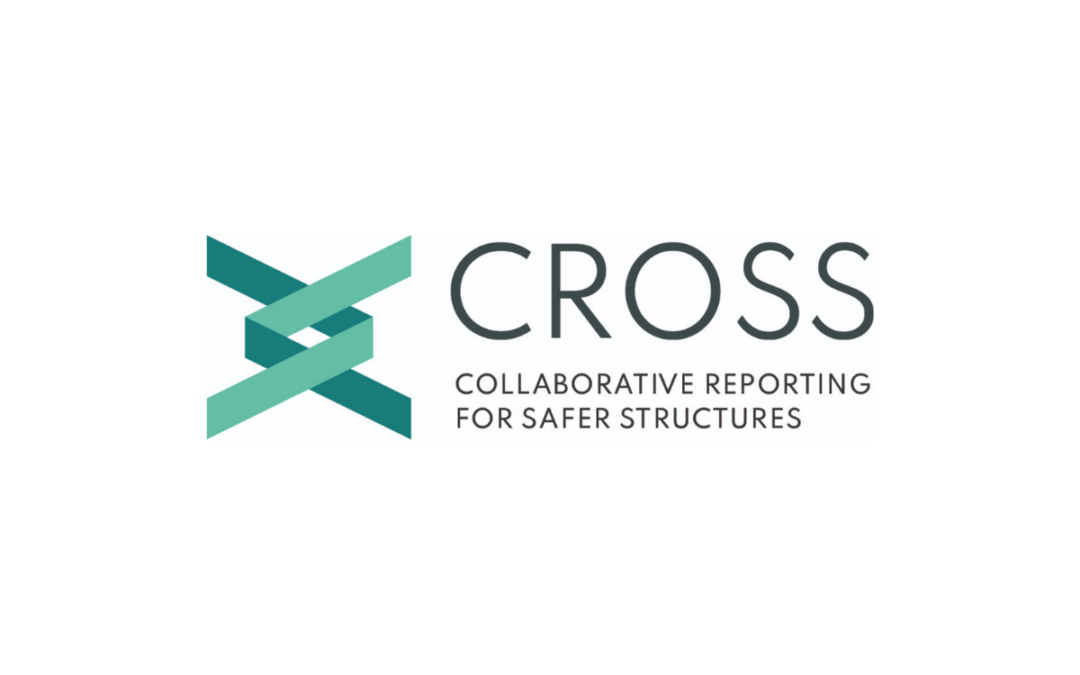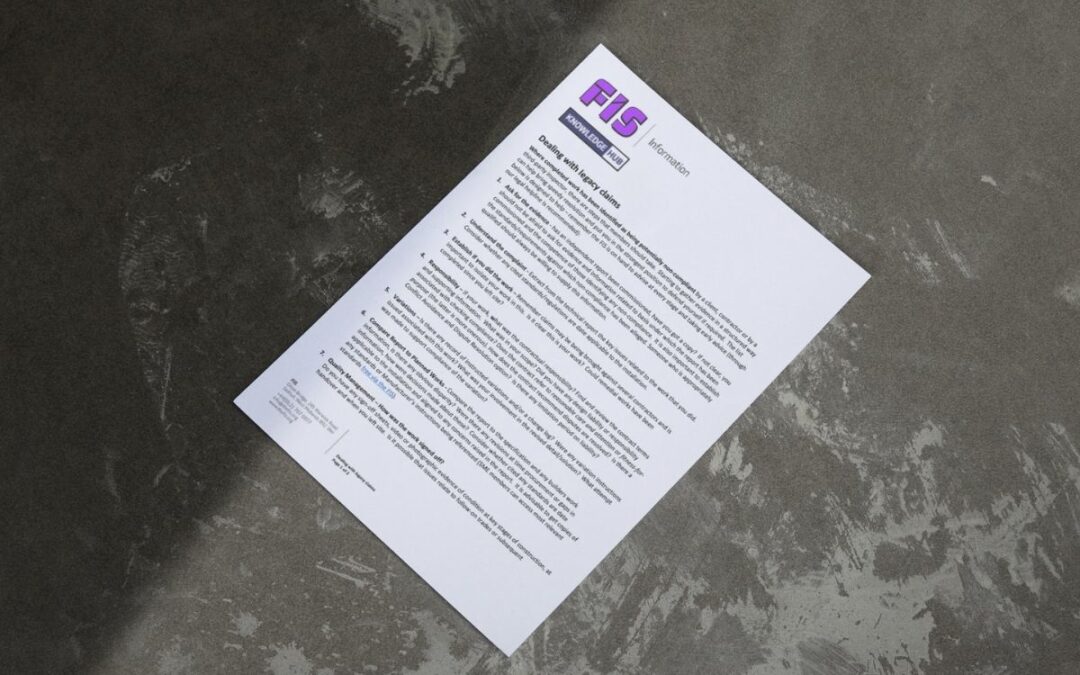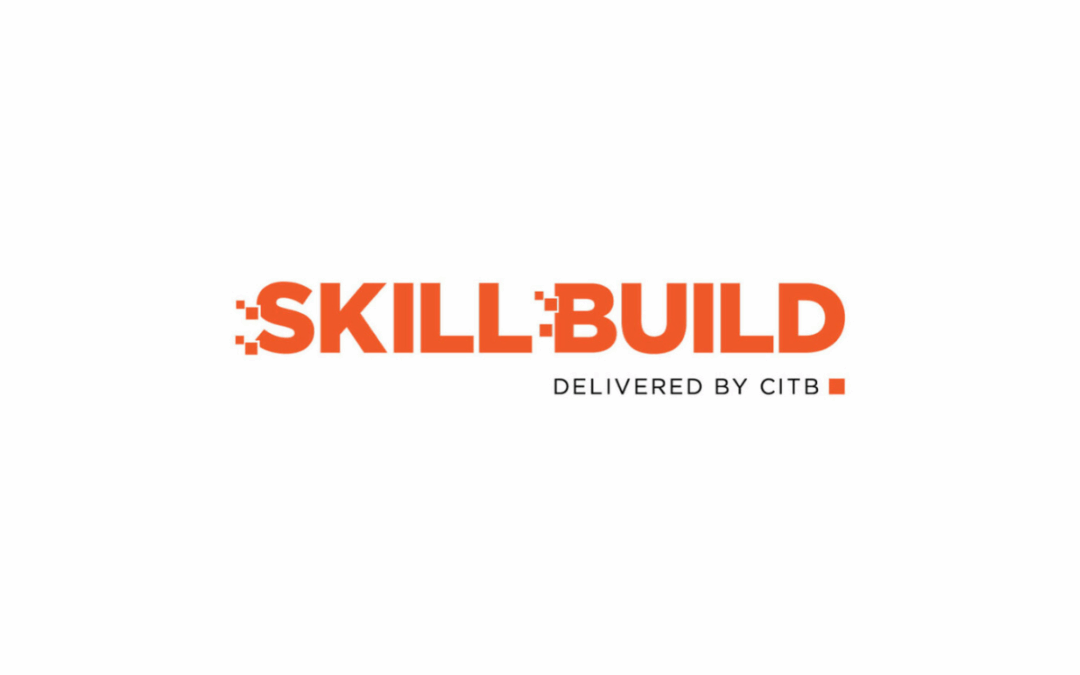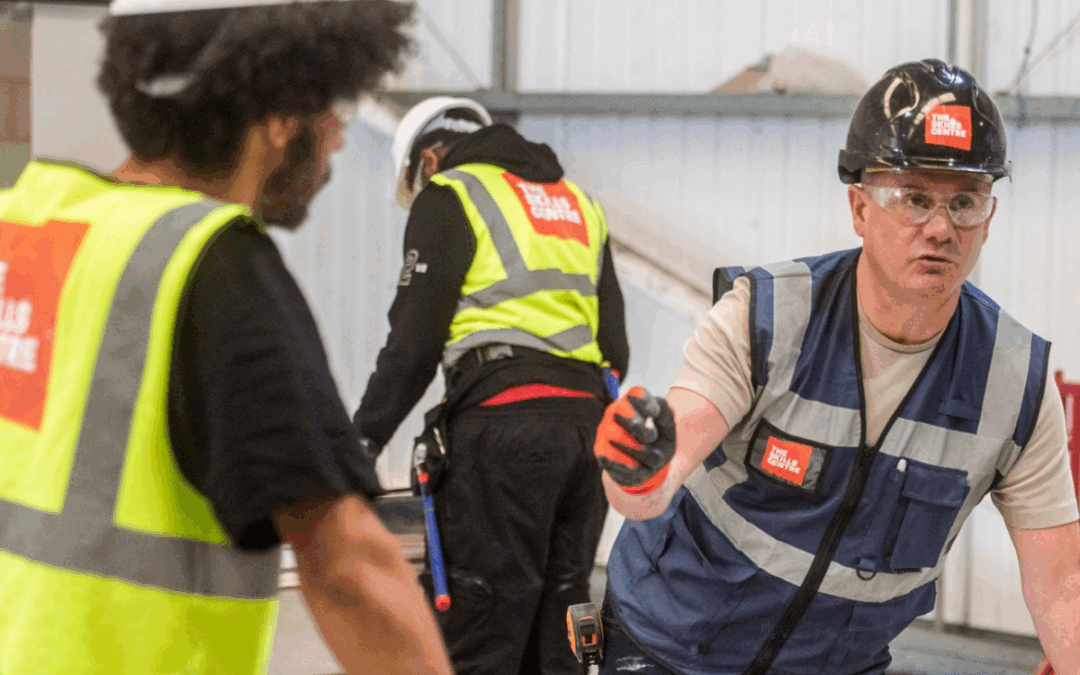
by Oscar Venus | 19 Dec, 2025 | Main News Feed
Collaborative Reporting for Safer Structures UK (CROSS) has published two new reports highlighting implementation failures associated with internal passive fire protection elements. The reports provide valuable insight into how fire safety measures can be compromised on site, often through overlooked, misunderstood, or novel points of failure.
The publications focus on:
- The use of self-drilling screws in the installation of fire dampers
- Fire compartmentation and structural integrity concerns
Both reports include expert panel commentary and are designed to help professionals across the built environment learn from real-world issues and improve future practice. FIS encourages members to review the findings carefully and consider how the lessons apply to their own projects.
CROSS operates as a confidential reporting system, enabling individuals working in the built environment to report fire and structural safety concerns anonymously. The aim is to share lessons learned, drive positive change, and raise safety standards across the industry.
FIS members are welcome to submit reports directly to CROSS. Alternatively, members who wish to discuss concerns in confidence, or who are unsure how to act, are encouraged to contact the FIS technical team for guidance and support.
Read the full reports:
FIS maintains a list of critical safety alerts from CROSS and issued directly through FIS that are relevant to our community through our Building Safety Toolkit here.

by Oscar Venus | 19 Dec, 2025 | Main News Feed
Citation has shared an important legal update for employers following confirmation that the Employment Rights Bill has now passed through Parliament and becomes law on 18 December, formally enacted as the Employment Rights Act.
The Act represents the most significant overhaul of employment law in Britain in over 30 years (excluding Northern Ireland). While the legislation is now in force, the majority of changes will be introduced in phases from April 2026 through to 2027, following a series of government consultations and secondary legislation.
A Brief Overview
Originally introduced as a 158-page Bill, the legislation expanded to more than 330 pages during its passage through Parliament, proposing over 30 employment law reforms. Following extensive debate between the House of Commons and House of Lords, a final agreed version was approved this week.
Although the Act is now law, its provisions will not take effect immediately. The Government is running at least 26 consultations to finalise how employers will need to comply, with implementation staggered over the next two years.
Key Areas Employers Should Be Aware Of
Citation has highlighted three areas that are likely to have the most direct impact on employers’ costs and day-to-day operations.
Statutory Sick Pay – Changes from April 2026
The current three waiting days for Statutory Sick Pay (SSP) will be removed, meaning SSP will become payable from day one of sickness absence. In addition, the Lower Earnings Limit will be abolished, extending SSP entitlement to lower-paid workers.
Employers may need to budget for increased sickness costs and ensure absence management procedures are robust and consistently applied.
Unfair Dismissal – Reduced Qualifying Period from January 2027
The qualifying period to bring an ordinary unfair dismissal claim will reduce from two years to six months. The Government has indicated this will take effect from 1 January 2027, applying retrospectively to employees who reach six months’ service by that date.
This change places greater emphasis on recruitment decisions, probation management, performance documentation and manager training.
Expanded Duties to Prevent Harassment – From October 2026
Employers will become liable for harassment of employees by third parties, such as customers or suppliers, unless they can demonstrate that all reasonable steps were taken to prevent it. This duty will apply to all protected characteristics, not just sexual harassment.
Employers will need to actively assess risk, implement preventative measures and ensure policies are embedded in practice.
Indicative Implementation Timeline
Based on current Government commitments, key changes include:
April 2026
- Day one SSP entitlement
- Day one paternity leave and unpaid parental leave
- Establishment of the Fair Work Agency
- Increased whistleblowing protections
- Collective redundancy protective award extended
October 2026
Duty to prevent harassment (including by third parties)
Fire and rehire reforms
Extended tribunal time limits
Trade union access and recognition changes
January 2027 onwards
- Six-month unfair dismissal qualifying period
- Zero-hours contract reforms
- Enhanced protections for pregnant workers
- Flexible working and bereavement leave reforms
- Regulation of umbrella companies
Further Support
Citation has confirmed it will continue to support employers through the transition period with detailed guidance, webinars and practical advice as further clarity emerges.
FIS is sharing this update to ensure members are aware of the forthcoming changes and can begin early planning where appropriate.
For further information or tailored advice, members may wish to contact Citation directly or seek professional HR and legal guidance.

by Oscar Venus | 19 Dec, 2025 | Main News Feed
New findings published in Knowledge Share 001 by the Passive Fire Knowledge Group (PFKG) highlight a persistent challenge across construction projects: inadequate coordination of MEP services within compartment walls during the early design stages.
The PFKG report identifies that poor consideration of service positioning, separation distances and opening sizes often makes it difficult to install tested or certified penetration sealing systems later in the project. This can result in compliance risks, redesign, costly remedial works and delays during construction.
Recommendation: Improved Modelling and Early Coordination
To address this issue, the PFKG recommends the development of a modelling guide to support better MEP design coordination and architectural space planning. Early alignment between designers and specialists can ensure that services are correctly positioned and separated, and that openings are appropriately sized to allow compliant passive fire protection solutions to be installed.
New Early Design Guidance in Development
Building on this recommendation, the PFKG has partnered with the Association for Specialist Fire Protection (ASFP) to develop practical early design guidance that directly addresses these challenges.
The work is well advanced, and publication of the new guidance by the ASFP is expected early next year. The guidance will support designers, specifiers and contractors in delivering compliant, buildable solutions while helping to reduce risk and avoid unnecessary cost.
FIS maintains a list of critical safety alerts from CROSS, PFKG and issued directly through FIS that are relevant to our community through our Building Safety Toolkit here.

by Oscar Venus | 19 Dec, 2025 | Main News Feed
This week the Government announced that the Single Construction Regulator (SCR) Prospectus has now been published. This marks a significant milestone in the Government’s commitment to long-term reform of the built environment, following the Grenfell Tower Inquiry’s recommendations. The prospectus sets out our vision for a coherent, accountable regulatory system that prioritises safety, quality, and trust across buildings, products, and professions. It outlines how a new regulator will consolidate oversight functions, reduce fragmentation, and drive cultural change across the sector.
You can read the full prospectus here: Single construction regulator prospectus – GOV.UK
As part of this wider programme, the Government has also published the Fire Engineers Authoritative Statement and the accompanying Next Steps document. These publications set out the principles that will guide reform of the fire engineering profession, including steps towards a more coherent, accountable, and regulated professional landscape. This work responds directly to Recommendation 17 of the Grenfell Tower Inquiry and will sit alongside the broader professions strategy to ensure consistency and alignment across all disciplines.
You can read the fire engineering publications here: Fire engineering profession reform – GOV.UK
Government remain committed to implementing the Grenfell Inquiry recommendations and this week FIS (supported by members have been attending Round Tables looking at Mandatory Licencing of Contractors and looking at the role of Principal Designer. In this work Government are developing a new professions strategy, supported by a stronger regulatory framework. The aim is to raise standards of competence and accountability but also tackle the systemic barriers that have long held back progress across the sector.
FIS will continue to work with the Regulator to support the development of a comprehensive strategy for the built environment professions that will:
- Take a holistic view of regulation, competence, and culture across all those operating in the built environment sector.
- Introduce a clear unified strategy for regulatory and non-regulatory reform at a government, industry, and individual level. This will be designed to increase capacity, skills, and investment in the workforce.
- Work in tandem with parallel reforms to building regulations and construction products to improve building safety quality and productivity.
- Establish a new system of regulatory oversight and enforcement, with a centralised oversight function built on clear, coherent standards and outcomes.
- Simplify the current patchwork of professional regulation.
Next Steps & Engagement
- Government will be launching a Call for Evidence in Spring 2026
- This will lead towards a Professions Strategy Publication in Spring 2027

by Oscar Venus | 5 Dec, 2025 | Main News Feed
The Government has announced an amendment to the upcoming Employment Rights Bill, confirming that the qualifying period for claiming unfair dismissal will be reduced from two years to six months. This change replaces the earlier proposal to make unfair dismissal a day-one right.
Under the revised plan, existing day-one protections, including automatically unfair dismissal provisions and discrimination safeguards, will remain unchanged.
In addition, the Government has reaffirmed that new day-one rights to Statutory Sick Pay and paternity leave will come into effect from April 2026, supporting wider reforms to improve workplace protections.

by Oscar Venus | 5 Dec, 2025 | Building Safety Act
The Building Safety Regulator (BSR) has released new data on Gateway Two applications covering the period 6 October to 24 November 2025, showing continued progress in reducing the backlog and implementing improvements through the Innovation Unit.
Across all application types, 401 decisions were made during this period, bringing the total number of decisions to 578 since the end of August.
Gateway Two Application Progress
- Applications submitted under the previous Gateway Two model are now seeing a 73% approval rate, with many receiving approval subject to requirements.
- 54 legacy new-build applications remain in progress, and the BSR is prioritising meetings with regulatory partners to finalise the majority of these before the end of December.
- The Innovation Unit, established to accelerate processing times, is currently managing 73 of 167 live applications.
- Of the decisions made within the Innovation Unit’s 12-week service level agreement, 11 applications have been processed, although all were deemed invalid or rejected. FIS is engaging with the BSR to better understand the factors behind these outcomes.
Progress on National Remediation Programmes
Updated MHCLG data shows ongoing progress across remediation programmes for residential buildings over 11 metres in England, up to October 2025:
- 35% of the 5,570 identified buildings have now completed remediation works.
- A further 14% have work underway.
- Under the forthcoming Remediation Bill, landlords of buildings over 18 metres will be required to complete remediation by the end of 2029.
- Remediation of unsafe ACM cladding continues to advance, with 91% of the 513 affected buildings fully remediated.
FIS will continue to track these developments closely and keep members updated as the regulatory framework and Gateway processes evolve.

by Oscar Venus | 5 Dec, 2025 | Main News Feed
With just over a month to go until visitor bookings open on Monday 12 January, excitement is already building for Open Doors 2025. More than 100 events have been registered across the UK so far, offering the public a rare chance to step behind the scenes of some of the nation’s most iconic construction projects; including Buckingham Palace, Natural History Museum – Unlocked, Edgbaston Cricket Ground, and Aintree Hospital.
A huge thank you to all FIS members who are opening their sites, offices, manufacturing facilities and training centres from 23–28 March, helping to showcase the opportunities and diversity within the construction industry.
Delivered by Build UK, Open Doors continues to be one of the most effective initiatives for attracting new talent into construction. Interest from schools, colleges and universities is already strong, and a new report from Open Doors partner Prospects highlights just how vital workplace experiences are in helping young people transition successfully into employment.
With this in mind, we are encouraging members to upload all planned events to the Open Doors website before the Christmas break. The more opportunities available, the more young people we can inspire to take their first step into the industry.
Upload your events and get ready for visitor bookings from 12 January.

by Oscar Venus | 28 Nov, 2025 | Main News Feed
A Construction Coalition led by the British Woodworking Federation and supported by Finishes and Interiors Sector wrote to the Prime Minister last month expressing concerns related to proposed reform of Apprenticeships. In response to this letter and subsequent meetings, Skills England announced at a meeting this week (attended by FIS) that implementation had been paused to allow time to understand and address concerns raised.
The letter expresses serious concern over plans by Skills England to shorten apprenticeship durations to as little as eight months and introduce new assessment methods that could weaken quality assurance and consistency. The stark warning is that these reforms could dismantle established routes to competence, erode employer confidence, and threaten the delivery of safe, high-quality construction at a time when the UK faces an ambitious target of building 1.5 million new homes.
The changes were set to apply to all apprenticeships in England, with site carpentry and joinery at the forefront one of five pilot areas this summer.
FIS Head of Skills Beena Nana reflected:
“The positive to draw is that they are listening and that changes are not going to be railroaded through. The last round of Apprentice reforms were all about putting employers at the heart of decisions – this is critical. The direction of travel was a worry, but at least we have been heard and as we develop apprenticeships we can ensure that the duration and assessment methodology are commensurate with the competence standard that must be reached to support the emphasis on competence in the latest iterations of the Building Regulations”.

by Oscar Venus | 21 Nov, 2025 | Main News Feed
FIS was proud to support SkillBuild 2025, the UK’s largest multi-trade skills competition, which once again brought together an impressive pool of talented and motivated individuals from across the country. The event celebrates the very best emerging professionals in construction and highlights the vital role skills competitions play in shaping the future of our industry.
SkillBuild continues to be a catalyst for developing new talent, inspiring career pathways, and showcasing the high standards of craftsmanship across the built environment. The passion, dedication and potential demonstrated by competitors this year was exceptional, and a positive reflection of the next generation entering our sector.
FIS was delighted to be part of a programme that not only recognises excellence but also strengthens the industry’s commitment to skills development and future workforce growth.

by Oscar Venus | 20 Nov, 2025 | Labour, Main News Feed, Skills
If you’re a CITB-registered employer, you may be entitled to a wide range of grants to support the cost of training and developing your workforce. Many employers deliver training but never submit a claim, meaning valuable funding goes unused.
FIS is here to help members navigate the CITB system and ensure you access the support available. If you would like advice or hands-on assistance with claiming grants, please contact: Marie Flinter – marieflinter@thefis.org
Examples of CITB Grants Available
Short Duration Training Grants (Training between 3 hours and 29 days)
- Tier 1: £60
- Tier 2: £140
- Tier 3: £240
NVQs & SCQF Qualifications (Level 2 and above / SCQF Level 5 and above)
- £600 on successful completion
Apprenticeships
- Attendance Grant: £2,500 per year
- Achievement Grant: £3,500 on completion
- Interior Systems Installer Apprenticeships: additional £2,000 uplift
Travel & Accommodation Support
- 80% accommodation costs (CITB pre-approval required)
- Travel support where costs exceed £20 per week
Long Qualification Grants
(For higher-level qualifications such as HNCs, HNDs, Degrees, Postgraduate awards)
- Attendance Grant: £1,125 per year (up to 6 years)
- Achievement Grant: £1,875 on completion
FIS encourages all eligible members to review their training activity and take advantage of these grants. Our team is ready to support you through the process to ensure nothing is missed.
If you need guidance or support, please get in touch.

by Oscar Venus | 20 Nov, 2025 | Main News Feed
The Health and Safety Executive (HSE) has opened a consultation on proposed changes to strengthen the Control of Asbestos Regulations and update guidance on asbestos management.
The consultation aims to improve clarity, consistency and safety across the industry, with proposed updates including:
- Clearer definitions of what constitutes work with asbestos, helping duty holders better understand their legal responsibilities.
- Measures to ensure independence and impartiality in roles responsible for clearing asbestos, reducing the risk of exposure during and after remediation.
- Improvements to supporting guidance to aid compliance and raise standards of asbestos management.
HSE is seeking views from contractors, building owners, employers, and others working with or managing asbestos in buildings.
Consultation deadline: Friday 9 January
FIS encourages members to read the proposals and submit feedback to help shape the future of asbestos regulation.

by Oscar Venus | 20 Nov, 2025 | Main News Feed
The British Standards Institution (BSI) has released a new free standard, BS 30417, offering practical guidance on how to ensure Personal Protective Equipment (PPE) is inclusive, appropriate, and effective for a diverse workforce.
As the construction and fit-out sector continues to improve safety culture and tackle barriers to recruitment and retention, the publication of BS 30417 provides employers with clear, actionable recommendations on:
- Selection and procurement of inclusive PPE
- Fit testing and adjustment to ensure proper protection
- Training and information to support correct use
The standard is designed to help organisations meet their responsibilities under health and safety, equality, and employment legislation, ensuring that PPE works effectively for all individuals regardless of size, shape, gender or specific needs.
BS 30417 is available to download free of charge, providing an accessible resource for employers looking to improve workplace safety and inclusivity.
FIS encourages members to review the guidance and consider how it can be applied within their own operations.

by Oscar Venus | 20 Nov, 2025 | Main News Feed
Draft regulations have been laid before Parliament confirming that the functions of the Building Safety Regulator (BSR) will be transferred from the Health and Safety Executive (HSE) to a new executive non-departmental public body, sponsored by the Ministry of Housing, Communities and Local Government (MHCLG), from 27 January 2026.
The new body will retain all current powers, staff and live cases managed within the HSE’s Building Safety Division, ensuring continuity while establishing the framework for a long-term, standalone regulator.
New Board Structure
The legislation sets out a new governance model, including:
- A Chair and three to eight board members
- Committees covering building control, industry competence, and residents’ views
This marks the first phase in the Government’s ambition to create a single construction regulator, as recommended in the Grenfell Tower Inquiry’s final report.
Licensing Scheme for Principal Contractors
Another key Inquiry recommendation is the introduction of a licensing scheme for Principal Contractors working on Higher-Risk Buildings (HRBs).
Build UK recently hosted a roundtable with MHCLG to explore how such a scheme could operate in practice.
There was strong support for a system that builds on existing requirements, including the Common Assessment Standard. MHCLG is expected to consult on licensing proposals in autumn 2026.
Progress on Remediation
MHCLG has also published new data on remediation across residential buildings 11 metres and over in England, up to September 2025:
- 35% of the 5,558 identified buildings have now completed remediation
- A further 13% have work underway
The new Remediation Bill, currently progressing through Parliament, will require landlords of buildings 18 metres and over to complete remediation by the end of 2029.
Progress continues on buildings with unsafe ACM cladding, with 91% now fully remediated.

by Oscar Venus | 20 Nov, 2025 | Labour, Skills
The Migration Advisory Committee (MAC) has announced that 82 occupations have been shortlisted for potential inclusion on the Temporary Shortage List (TSL) as part of the Government’s ongoing review. Build UK will be working with the Construction Leadership Council (CLC) to coordinate the industry’s response to the forthcoming call for evidence, which will determine the final list submitted to the Home Secretary.
Construction Roles Under Consideration
A wide range of construction occupations are being examined for potential inclusion, including:
- Bricklayers
- Carpenters and joiners
- Construction supervisors
- Floorers and wall tilers
- Painters and decorators
- Plasterers
- Plumbers
- Roofers
- Stone masons
- Steel erectors
- Welders
Trade Associations representing these occupations, are invited to join the next meeting of the CLC Movement of People Working Group, supported by the Department for Business and Trade, taking place:
Monday 24 November
2:00pm – 3:00pm
The session will outline what it means for an occupation to be placed on the TSL and the type of evidence required for the call for evidence submission. FIS members who wish to attend can request an invitation.
Wider Policy Context
The Government has reiterated its commitment to ‘restore control to our borders’, with new asylum and returns policy changes making refugee status temporary. These developments sit alongside ongoing adjustments to the immigration system affecting workforce recruitment.
To support employers navigating these requirements, Build UK continues to update its resources, including:
FIS will continue to monitor developments and engage with industry partners to ensure members’ interests are represented.

by Oscar Venus | 14 Nov, 2025 | Main News Feed
Through the FIS helpline we have seen an uptick in legacy claims in recent months. This is linked to recent First-tier Tribunal (FTT) rulings under the Building Safety Act 2022 (BSA) which have significantly reshaped the risk landscape for contractors and their supply chains by starting to give a clear steer as to how the new regulations will be interpreted. These decisions confirm that liability for historic defects can extend far beyond developers, creating exposure for contractors involved in design, installation, and remediation works—even decades after completion.
Two notable recent cases are:
Empire Square: Expanding the Scope of Contribution Orders
Here, leaseholders sought a Remediation Order (RO) against the landlord, Fairhold Athena Ltd, for cladding and fire-stopping defects. Fairhold, in turn, applied for a Remediation Contribution Order (RCO) against Berkeley Group, the original developer. The Tribunal ordered Berkeley to pay £9.6 million for remediation costs, plus ongoing waking watch and legal fees—confirming that RCOs can cover litigation and ancillary costs, not just physical works.
For contractors, this matters because developers facing multimillion-pound liabilities are likely to seek to recover costs through contractual indemnities and professional negligence claims. The Tribunal’s purposive interpretation—prioritising safety over fault—means that even parties who complied with historic standards may now face claims if their work contributed to defects.
Supreme Court in URS v BDW: 30-Year Limitation
The Supreme Court’s decision in URS v BDW Trading Ltd compounds this risk by confirming that the BSA’s extended limitation period—up to 30 years for historic defects—applies to negligence and contribution claims. Contractors who believed liability had expired under the previous six- or twelve-year limitation now face a dramatically longer exposure window.
Practical Implications for Contractors
- Contractual Risk Transfer: Expect developers to invoke indemnities and warranties aggressively. Contractors should review historic contracts and assess exposure.
- Record-Keeping: Detailed project records from decades ago could be critical in defending claims. Contractors should audit archives and establish retrieval protocols.
- Future Contract Drafting: New projects should include clear liability caps and dispute resolution mechanisms to mitigate long-tail risk.
FIS Consultant Advisor Len Bunton has been working with members at the coal face and based on recent experience has provided fresh insight to help improve FIS Guidance.
“We are now working with a number of contractors where parties are seeking compensation for legacy works, some of it as long as 14 years ago. We have constantly repeated the message that Record Keeping is essential and this is certainly coming to bare for some. All contractors whether main or specialist should have a strategy in place to deal with legacy claims and this factsheet provides a good base for this. Remember you are not alone, we are here to help and help we can – the earlier you contact us the better and ideally before you have responded.”

by Oscar Venus | 13 Nov, 2025 | Membership, Skills
FIS is encouraging members to get involved with the Go Construct STEM Ambassador Programme, a fantastic opportunity to help shape the future of the Finishes and Interiors Sector and inspire the next generation of talent.
If you’re passionate about supporting young people and promoting careers in construction, this initiative offers the perfect way to make a real difference. By becoming a STEM Ambassador, you’ll have the chance to engage directly with schools, colleges, and communities to highlight the diverse and rewarding opportunities available across the industry.
To help you get started, Go Construct is hosting two upcoming webinars introducing the programme and showing how current ambassadors are already making an impact.
Upcoming Webinar Sessions
Monday 8 December, 11:00–12:00
Thursday 15 January 2026, 11:00
During these sessions, you’ll:
- Be introduced to the STEM Learning platform
- Receive a step-by-step guide to becoming an Ambassador
- Learn how to engage effectively with schools and career events
- Have the opportunity to sign up live and start your journey
Whether you’re completely new to outreach or already active in career engagement, becoming a STEM Ambassador is a great way to build confidence, develop presentation skills, and connect with young people exploring construction as a career.
To register for your preferred session, contact: Marie Flinter – marieflinter@thefis.org
Together, we can inspire the next generation and help secure a bright, skilled future for the finishes and interiors sector.

by Oscar Venus | 31 Oct, 2025 | Events, Skills
FIS is proud to be supporting this year’s SkillBuild National Final, taking place at the Marshall Arena, Milton Keynes, on 19–20 November 2025, the UK’s largest multi-trade skills competition showcasing the next generation of construction talent.
Visitors to the event can watch top scoring competitors from across the UK compete across multiple trades including Drylining, Bricklaying, Carpentry, Plastering, Painting and Decorating, Wall and Floor Tiling, and Joinery. As the competition unfolds, projects will transform from blank canvases into stunning displays of craftsmanship, skill, and precision.
Construction Showcase: Inspiring the Next Generation
FIS will be exhibiting as part of the Construction Showcase, an interactive experience hub packed with have-a-go activities and live demonstrations designed to inspire young people to explore careers in construction.
Construction Showcase Opening Times
- Wednesday 19 November: 09:00 – 16:00
- Thursday 20 November: 09:00 – 15:00
FIS is inviting members to get involved by supporting the stand with interactive activities or demonstrations that highlight the diversity of skills within the finishes and interiors sector.
If you’re able to contribute, please contact Beena Nana at beenanana@thefis.org by Friday 7 November.
Book your free visitor tickets here

by Oscar Venus | 31 Oct, 2025 | Labour, Skills
FIS is proud to be partnering with The Skills Centre to support a series of Skills Bootcamps and Employment Programmes at training facilities across the UK.
As part of this initiative, The Skills Centre will be delivering an ‘Introduction to Drylining and Insulation’ course designed to equip learners with the essential skills and knowledge needed to take their first steps into the finishes and interiors sector.
Training and Qualifications
Participants will gain a strong foundation in key areas, with courses including:
- Cskills Level 1 Health & Safety
- CITB CSCS Health & Safety Environment (Green Card)
- Level 2 Understanding Domestic Retrofit
- Level 2 Removing Non-Hazardous Waste in the Workplace (Blue Card)
- Environmental Awareness in the Construction Industry
- Introduction to Interior Systems
Introduction to Passive Fire
Note: The specific qualifications delivered may vary based on employer demand at the time of delivery.
This intensive training programme aims to provide practical, hands-on experience that prepares learners for real-world work environments and long-term careers in the interiors sector.
A Call to FIS Members
As part of our ongoing commitment to tackling the industry’s skills shortage and nurturing new talent, FIS is calling on members in the Greater London area to get involved.
Can your business offer work experience, employment opportunities, or apprenticeships to support these new entrants into the sector?
This is a fantastic opportunity to help shape the next generation of fit-out professionals and strengthen the future workforce of our industry.
To find out more or to express your interest, please contact Beena Nana or Marie Flinter at FIS.

by Oscar Venus | 31 Oct, 2025 | Skills
FIS is encouraging members across Scotland to take part in a national review of the National Occupational Standards (NOS) for plastering — a crucial step in ensuring training and qualifications reflect the skills, techniques, and technologies used in today’s industry.
Led by Skills Development Scotland (SDS), this consultation seeks input from employers and industry professionals to make sure the refreshed NOS and future apprenticeship framework truly align with the needs of the plastering sector.
Why Your Input Matters
Your expertise and insight are essential in shaping a framework that reflects real-world practices and supports a skilled, competent, and future-ready workforce.
By getting involved, you’ll help influence the content of training programmes, ensure new entrants are job-ready, and support long-term skills development across the Scottish construction sector.
How You Can Get Involved
SDS is inviting employers and stakeholders to:
- Review and comment on the draft NOS documents
- Attend virtual consultation sessions
- Share feedback on skills gaps, training needs, and industry trends
This work will directly inform the development of a refreshed plastering apprenticeship framework, helping to attract and prepare young people for successful careers within the industry.
To register your interest or find out more, contact:
Jim Johnstone, Development Manager (Construction)
Have Your Say: Help Shape the Future of Plastering in Scotland07929 814289 | jim.johnstone@sds.co.uk
FIS encourages all Scottish members involved in plastering and interior finishes to take this opportunity to contribute their knowledge and help shape the next generation of skilled professionals.

by Oscar Venus | 24 Oct, 2025 | Main News Feed
The European Chemicals Agency (ECHA) has announced that EU-REACH registration fees will rise by 19.5% from 5 November 2025, in line with cumulative inflation rates from 2021 to 2023. Small and medium-sized enterprises (SMEs) will continue to be exempt from these fee increases.
In addition, from 5 February 2027, ECHA will introduce a new advance SME verification process. Under the new system, companies claiming SME fee reductions must apply for official recognition at least two months before submitting their registration. ECHA’s verification decisions will remain valid for three years.
FIS members are advised to review their REACH compliance processes ahead of these deadlines to ensure smooth transition and avoid potential registration delays.
See full details here
Page 1 of 1712345...10...>Last






















